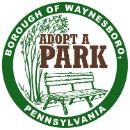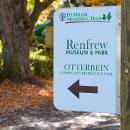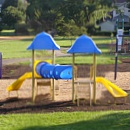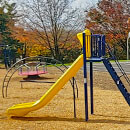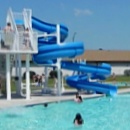For more information, please visit:
Waynesboro Borough Authority Lead Prevention
Understanding Lead & Your Drinking Water
Lead is a common metallic element in nature and can be found in air, soil, and water. It is also a powerful toxin that is harmful to human health. Lead was used for centuries in plumbing because of its pliability and resistance to leaks; in fact, lead’s chemical symbol, Pb, is derived from the Latin word for plumbing. In 1986, Congress amended the Safe Drinking Water Act, prohibiting the use of pipes, solder, or flux that were not “lead-free” in public water systems or plumbing in facilities providing water for human consumption.
Health Impacts
Exposure to lead in drinking water can cause serious health effects in all age groups. Infants and children can have decreases in IQ and attention span. Lead exposure can lead to new learning and behavior problems or exacerbate existing learning and behavior problems. The children of women who are exposed to lead before or during pregnancy can have an increased risk of these adverse health effects. Adults can have increased risks of heart disease, high blood pressure, kidney, or nervous system problems.
How does lead get into drinking water?
In some older homes lead may be present in the pipe or fixtures connecting the home to the water system or in the home plumbing. Lead in service lines or plumbing can dissolve or break off into water and end up at the tap.
How do I know if I have lead in my water?
Customers can contract with a local environmental testing lab or purchase in-home test kits at their local hardware store.
What does Waynesboro Borough Authority do to keep lead out?
Lead can enter the water when there is corrosion of lead joints on water mains or plumbing systems containing lead. To prevent the corrosion of pipes, Waynesboro Borough Authority adjusts the pH of the water and adds a corrosion inhibitor to prevent corrosion of water mains and indoor plumbing.
Risk Mitigation Measures
Minimize potential exposure to lead in water
Run the Tap Before Use—Lead levels are likely at their highest when the water has been sitting in the service line or plumbing for several hours. Flush this water from your system by running the cold water for several minutes which allows you to draw fresh water from the water main. Other household/non-potable water usage activities such as: washing clothes, showering, flushing the toilet, and running the dishwasher are also effective methods of flushing the system.
Clean Aerators—Aerators are small attachments at the tips of faucets that regulate the flow of water. They can accumulate small particles of lead and other debris in the screens. It’s recommended to repeat this procedure every few weeks to prevent build-up.
Use Cold Water for Drinking and Cooking—Using cold water for cooking and drinking can reduce your exposure to lead in the water. Hot water dissolves lead more quickly, resulting in higher levels of lead, if present, in water.
Filter the Water—If you want another preventative measure for the plumbing inside your home, you can purchase an NSF Water Filter that is certified to remove lead from your water. This filter should be used for water that will be used for drinking and cooking.
Lead Service Line Survey Introduction
Waynesboro Borough Authority is seeking your help to identify the material of the water service line coming into your home. Information about the type of service line entering your home allows us to make an accurate inventory of those service lines. Complete our Customer Survey here to identify and catalog your service line material. To determine whether your home has a lead service line or lead plumbing, you can hire a licensed plumber to inspect both your service line and other materials in contact with your drinking water. A service line inventory will be available to the public for an accurate, transparent view of the service line materials throughout our distribution system. Together, we can create a safer, healthier, and more reliable water supply for our community. Thank you for being a part of this journey with us.
Your input on this survey will take only a few minutes and will help Waynesboro Borough Authority ensure continued compliance with PA DEP public health and safety measures. Please click the link below if you wish to take the Lead service line survey.

